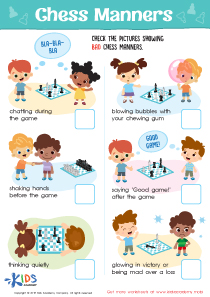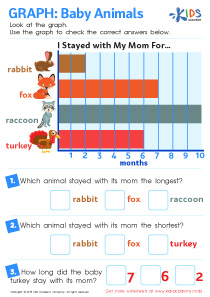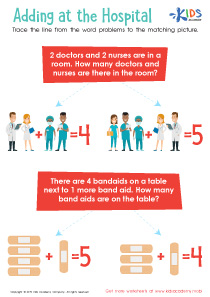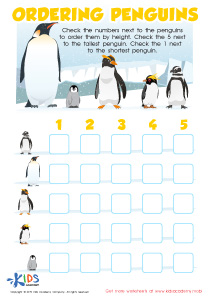Basic Arithmetic Normal Grade 1 Math Worksheets
5 filtered results
-
From - To
Welcome to our "Basic Arithmetic Normal Grade 1 Math Worksheets!" Tailored specifically for first graders, these engaging worksheets will help young learners develop essential arithmetic skills including addition, subtraction, and number recognition. Our user-friendly format allows children to practice and reinforce their understanding of basic math concepts at their own pace. Each worksheet features colorful visuals and relatable scenarios, making math both fun and accessible. Parents and teachers will find these resources invaluable for supporting classroom learning or at-home practice. Explore our collection to boost your child’s confidence in arithmetic and lay the foundation for future math success!
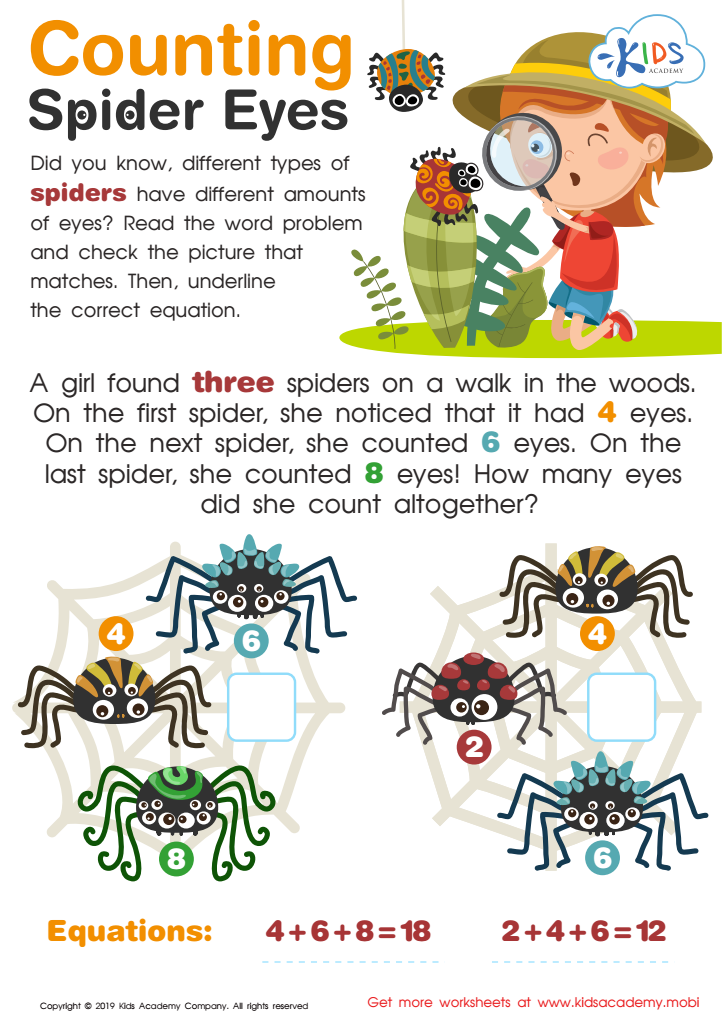

Counting Spider Eyes Worksheet
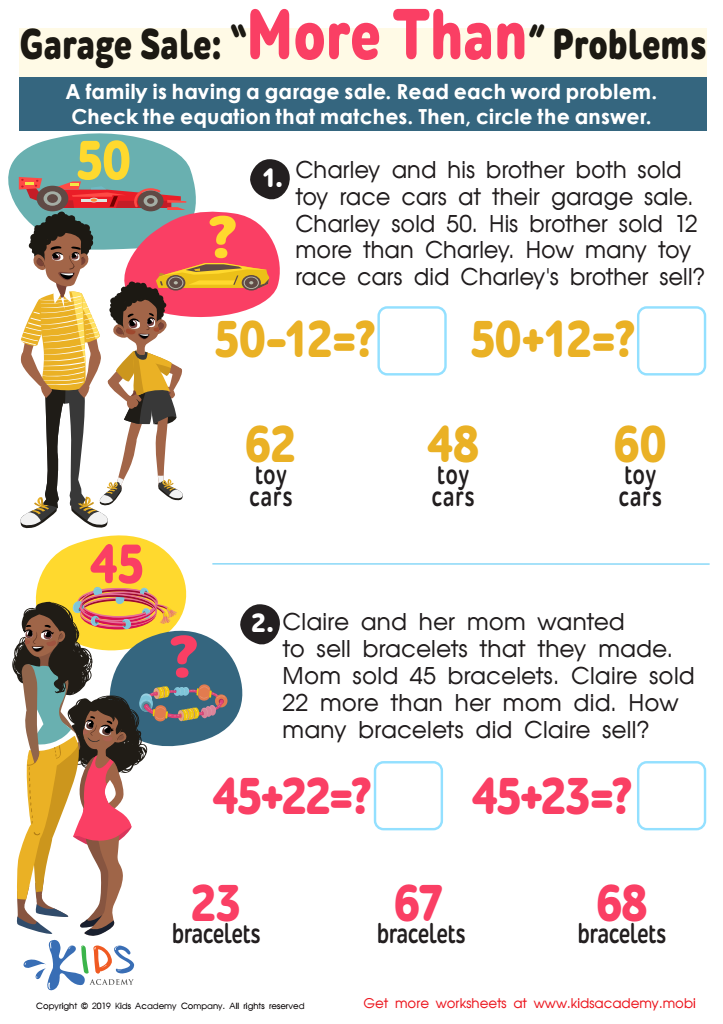

Garage Sale - More yhan Worksheet


Solve the Problem: Trick–or–treating Worksheet
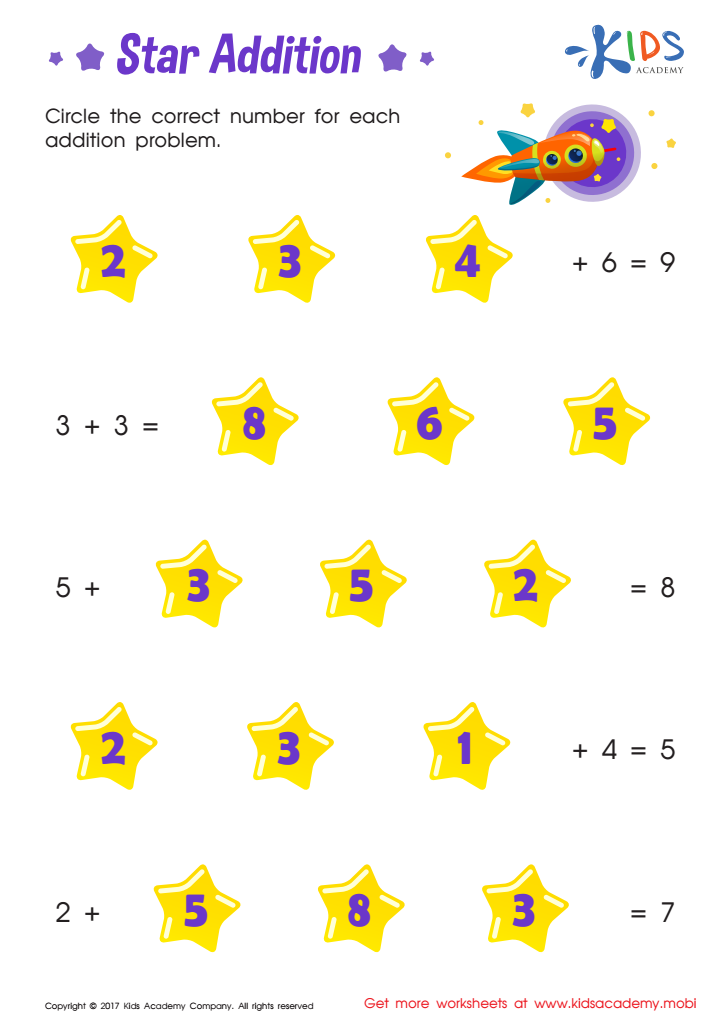

Star Addition Printable
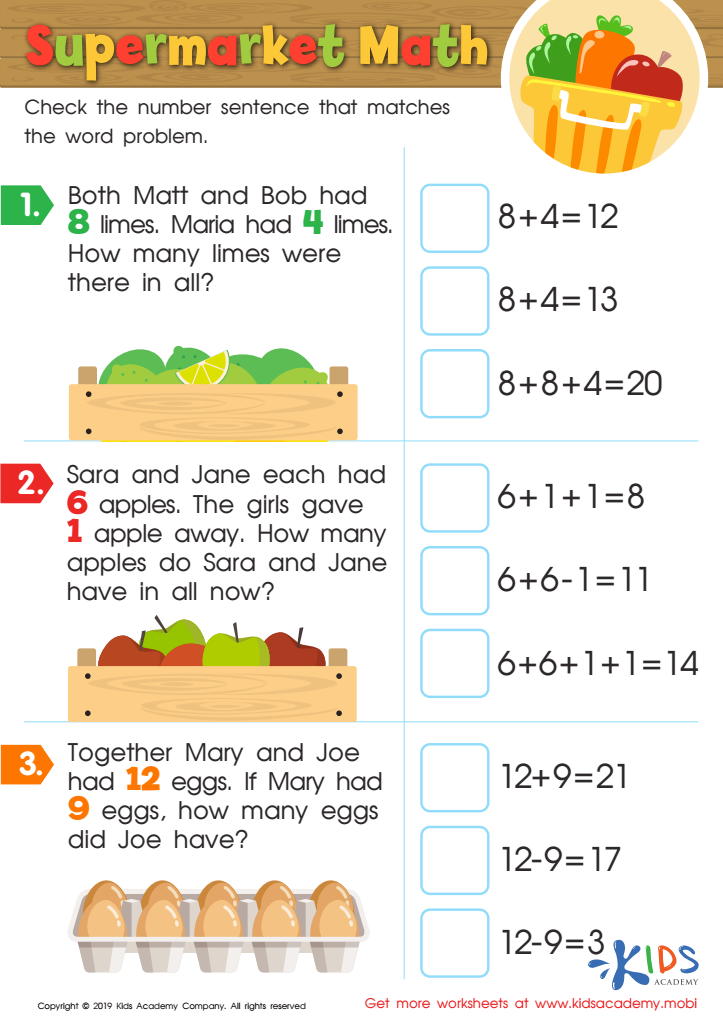

Supermarket Math Worksheet
Basic arithmetic in Grade 1 lays the essential foundation for a child's mathematical development and overall fluency in math. At this stage, students are introduced to fundamental concepts such as addition, subtraction, and number recognition, which are crucial for developing critical thinking and problem-solving skills. Understanding these core principles fosters a sense of confidence and competence as children advance in their education.
Parents and teachers should care about this aspect of the curriculum because early mathematical skills are linked to later academic success. When children grasp basic arithmetic concepts, they establish a vital framework for learning more complex topics, such as fractions, multiplication, and division, in subsequent grades. Additionally, strong arithmetic skills enhance a child's ability to tackle everyday tasks, like budgeting allowance or measuring ingredients for a recipe.
Furthermore, mastery in mathematics encourages perseverance and boosts self-esteem, which are key traits for lifelong learning. By actively engaging with children's mathematical growth, parents and teachers can help foster a positive attitude toward math, making it less intimidating and more enjoyable. Ultimately, focusing on basic arithmetic cultivates an essential life skill that benefits children in academics and in their daily lives.
 Assign to My Students
Assign to My Students











